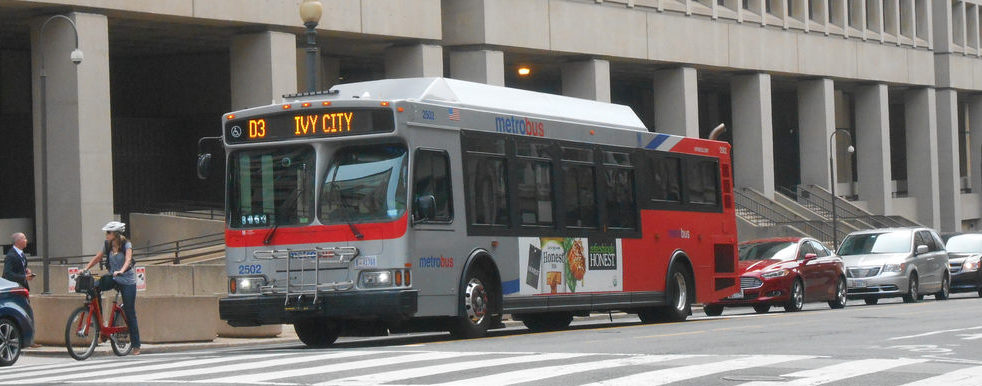A policy that bars religious-themed advertisements on the sides of city buses does not violate the First Amendment rights of the Catholic Church, the D.C. Circuit ruled Tuesday (July 31).
Last winter, the church sought to run a Christmas ad that depicted three shepherds under a star of Bethlehem and directed people to a church website. Here’s the ad:

The Washington Metropolitan Area Transit Authority—the regional transit system run by Maryland, Virginia, and D.C.—refused to run the ad, citing a policy that prohibits any political, religious, or other issue-oriented advertising. The church sued, arguing that the policy discriminated against the church’s religious views and infringed its freedom of speech. A district judge ruled in favor of the transit authority, and the D.C. Circuit agreed.
The church failed to show that the transit authority is “suppressing its viewpoint on an otherwise permitted subject, and its claim of discriminatory treatment is based on hypothesis,” the court said. “WMATA may exclude religion as a subject matter from its advertising space.”
Judge Rogers wrote the opinion, which was joined by Judge Wilkins. Judge Kavanaugh also was on the panel that heard the case, but he did not participate in its resolution because he has stopped deciding cases while his nomination to the Supreme Court is pending. During oral argument in March, Kavanaugh expressed skepticism of the transit authority’s policy, saying that excluding religious speech from public spaces is “odious to our Constitution.” (Circuit Breaker analyzed the oral argument here.)
Rogers, however, wrote that the policy is well within Supreme Court precedent allowing the government to exclude speech on certain topics as long as it does so in a neutral way. Key to the court’s analysis was a finding that transit advertising space is not a “public forum” akin to a street or a sidewalk, where the government would have less latitude to restrict speech.
Wilkins wrote a concurrence in which he suggested that, by permitting the government to bar certain controversial topics, courts promote more free speech in the long run. “Without reasonable control over the content of private speech in nonpublic forums, government may elect to close a forum entirely rather than deal with the administrative burden or floodgate consequences of accepting private speech without effective subject-matter restrictions,” Wilkins said.
For many years, WMATA permitted a wide range of advertisements on its buses and trains, including various political ads and one controversial ad that critiqued the Catholic Church’s position on condom use. But in 2015, responding to rider complaints and its own concerns that controversial ads could lead to vandalism or violence, the transit authority adopted the policy at issue in the case. It bars any advertisements that “promote or oppose any religion, religious practice or belief.”
The church argued that the transit authority applied the policy inconsistently by accepting ads from the Salvation Army, which is a Christian organization, and by accepting Christmas-themed ads from commercial advertisers. But the court said that those ads did not contain any religious content.
The transit policy, Rogers wrote, “does not function to exclude religious viewpoints but rather proscribes advertisements on the entire subject matter of religion.”
The court also rejected the church’s secondary arguments under the First Amendment’s Free Exercise Clause and the Religious Freedom Restoration Act.
The case, Archdiocese of Washington v. Washington Metropolitan Area Transit Authority, pitted two of the nation’s top appellate lawyers against each other. Paul Clement, a former solicitor general under President George W. Bush, represented the church, and Don Verrilli, a former solicitor general under President Obama, represented the transit authority. The Trump administration also weighed in on the side of the church.
In a separate case currently pending in D.C. district court, the American Civil Liberties Union is challenging the provision of the policy that bans politically-oriented ads.
![]()

